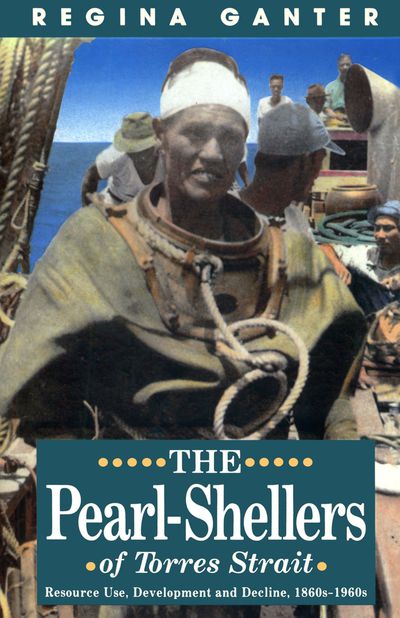The Pearl-Shellers Of Torres Strait
Resource Use, Development and Decline, 1860s–1960s
Regina Ganter
Paperback
Out of stock
$32.99
Member discount
As an MUP member you get 40% off the price of this book.
Member discount
As an MUP member you get 40% off the price of this book.
Member discount
As an MUP member you get 100% off the price of this book.
Member discount
As an MUP member you get 25% off the price of this book.
Member discount
As an MUP member you get 25% off the price of this book.
Member discount
As an MUP member you get 25% off the price of this book.
Member discount
As an MUP member you get 40% off the price of this book.
Member discount
As an MUP member you get 10% off the price of this book.
Member discount
As an MUP member you get 35% off the price of this book.
Member discount
As an MUP member you get 40% off the price of this book.
The Pearl-Shellers Of Torres Strait
Resource Use, Development and Decline, 1860s–1960s
Regina Ganter
In an ethnically stratified work force, Japanese, South Sea Islander, Torres Strait Islander and Aboriginal divers brought up from the sea floor the shell that produced mother-of-pearl, and sometimes pearls. Many men died at this dangerous work.
This was an industry that could have given the indigenous peoples of Torres Strait an occupation that preserved their identity and independence. Yet in spite of a co-operative lugger scheme that operated fairly successfully in the early twentieth century, a real independence was not achieved. And a resource that could have been conserved by small-scale indigenous harvesting was depleted time and again by the colonial practices of resource-raiding and mass extraction.
Regina Ganter charts the progress of pearl-shelling from its heyday through its several crises resulting from overfishing to its present cautious management. The book is greatly enhanced by the oral testimony of divers and boat-owners.
This was an industry that could have given the indigenous peoples of Torres Strait an occupation that preserved their identity and independence. Yet in spite of a co-operative lugger scheme that operated fairly successfully in the early twentieth century, a real independence was not achieved. And a resource that could have been conserved by small-scale indigenous harvesting was depleted time and again by the colonial practices of resource-raiding and mass extraction.
Regina Ganter charts the progress of pearl-shelling from its heyday through its several crises resulting from overfishing to its present cautious management. The book is greatly enhanced by the oral testimony of divers and boat-owners.
In an ethnically stratified work force, Japanese, South Sea Islander, Torres Strait Islander and Aboriginal divers brought up from the sea floor the shell that produced mother-of-pearl, and sometimes pearls. Many men died at this dangerous work.
This was an industry that could have given the indigenous peoples of Torres Strait an occupation that preserved their identity and independence. Yet in spite of a co-operative lugger scheme that operated fairly successfully in the early twentieth century, a real independence was not achieved. And a resource that could have been conserved by small-scale indigenous harvesting was depleted time and again by the colonial practices of resource-raiding and mass extraction.
Regina Ganter charts the progress of pearl-shelling from its heyday through its several crises resulting from overfishing to its present cautious management. The book is greatly enhanced by the oral testimony of divers and boat-owners.
This was an industry that could have given the indigenous peoples of Torres Strait an occupation that preserved their identity and independence. Yet in spite of a co-operative lugger scheme that operated fairly successfully in the early twentieth century, a real independence was not achieved. And a resource that could have been conserved by small-scale indigenous harvesting was depleted time and again by the colonial practices of resource-raiding and mass extraction.
Regina Ganter charts the progress of pearl-shelling from its heyday through its several crises resulting from overfishing to its present cautious management. The book is greatly enhanced by the oral testimony of divers and boat-owners.
Paperback
Out of stock
$32.99
Member discount
As an MUP member you get 40% off the price of this book.
Member discount
As an MUP member you get 40% off the price of this book.
Member discount
As an MUP member you get 100% off the price of this book.
Member discount
As an MUP member you get 25% off the price of this book.
Member discount
As an MUP member you get 25% off the price of this book.
Member discount
As an MUP member you get 25% off the price of this book.
Member discount
As an MUP member you get 40% off the price of this book.
Member discount
As an MUP member you get 10% off the price of this book.
Member discount
As an MUP member you get 35% off the price of this book.
Member discount
As an MUP member you get 40% off the price of this book.


